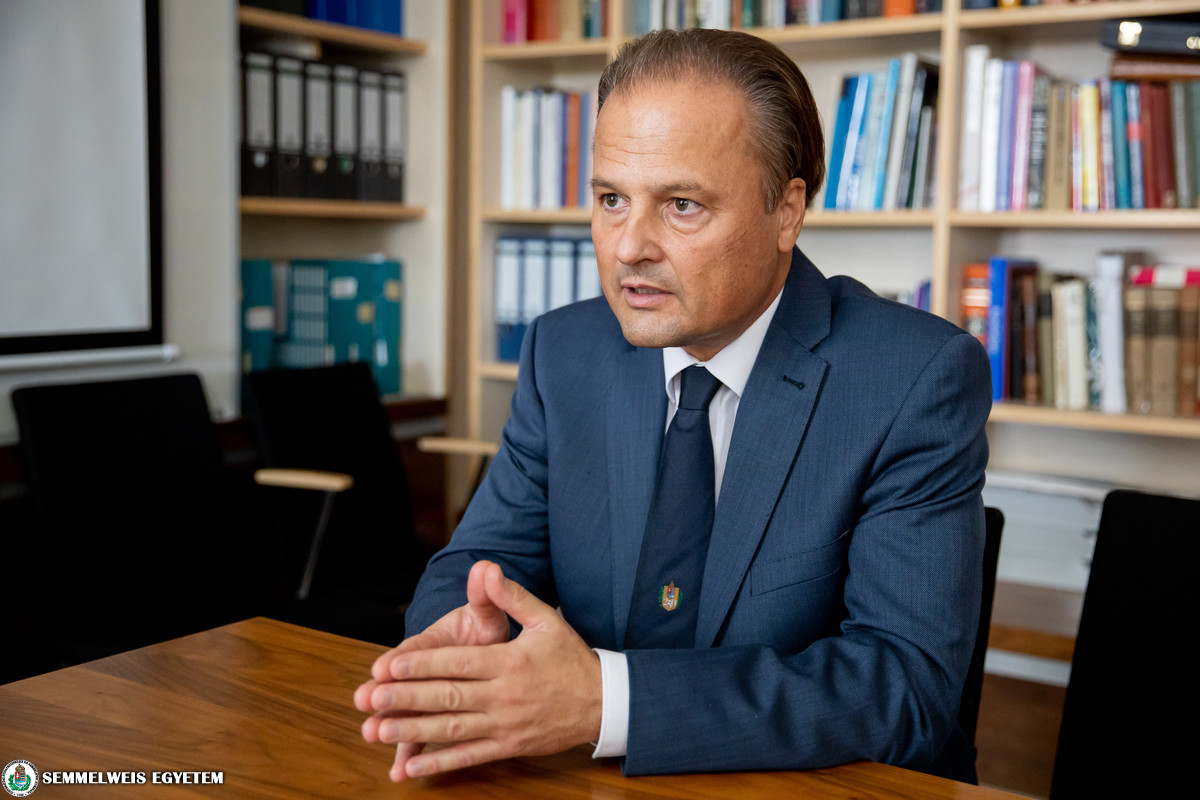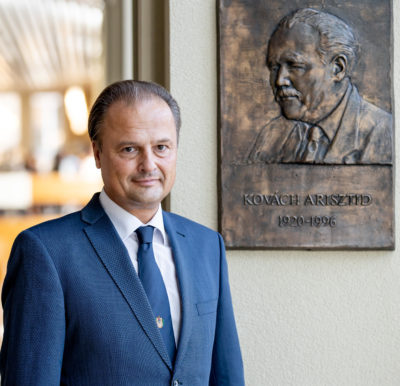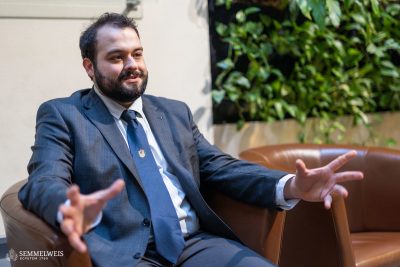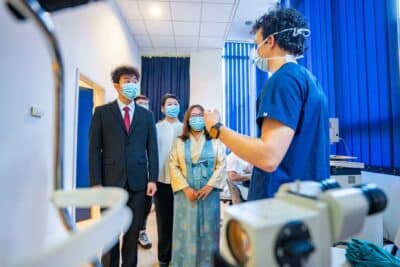According to Dr. Zoltán Benyó, who was appointed as director of the Institute of Translational Medicine in May, it is very important that translational approach appears in education besides research. In the interview, Dr. Benyó talked about how the new organization unit facilitates the better use of the theoretical material in the education of clinical courses, as well as how research can result in useful knowledge in medical care. He also pointed out the challenges that emerged during the introduction of the institute’s new courses.
The Institute of Translational Medicine was established last fall, with the merger of the Institute of Human Physiology and Clinical Experimental Research and the Institute of Patophysiology. Dr. Zoltán Benyó was first director of the institute and since May, he has been the head of the new organization unit.
“The transition was a huge challenge in more than one respect: the establishment of a new institute means new commitments as well, such as the elaboration and introduction of a new course that suits the curriculum of the Faculty of Medicine. Parallel to this, the merger of the two parent institutes also had to be carried out, in the course of which both professional and human aspects had to be taken into consideration”, pointed out Dr. Zoltán Benyó.
 The course “Translational Medicine and Patophysiology” is offered to the students in third year at the Faculty of Medicine. According to Dr. Benyó, it is important that students master translational approach during their studies.
The course “Translational Medicine and Patophysiology” is offered to the students in third year at the Faculty of Medicine. According to Dr. Benyó, it is important that students master translational approach during their studies.
“The significance of translation came into the foreground in the past decades, in which the following recognition played an important role: many times the knowledge acquired in the course of resrches stalled and did not reach the stage of practical implementation, because there is such a large gap between theoretical professionals and clinical professionals”, explained Dr. Benyó.
Translational medicine refers to a research concept which is aims at producing research results that can be used in practical medicine and health care. Focusing on translational medicine is also a priority topic in the rector’s programme: in order to have Semmelweis University among the top universities of the world, it is necessary to reinforce theoretical research and applied medicine, the link between these two.
“The Institute of Translational Medicine has two important roles. On the one hand, based on the knowledge offered by the courses in the first two years, it creates a bridge between theoretical knowledge and clinical courses. On the other hand, the realization of translation is a priority target in our research as well”, highlighted Dr. Benyó.
Besides “Translational Medicine and Patophysiology”, the institute offers another course at the Faculty of Medicine, which also emphasizes the significance of implementing theoretical knowledge in practice. The course “ECG in Clinical Practice” is offered to students in cooperation with the Heart and Vascular Center. It is quite unusual that a theoretical institute and a clinic are jointly responsible for teaching a course: in the first part of the semester, the students can master the theoretical fundamentals at the institute, and afterwards they have the opportunity to implement their knowledge in practice at the clinic. This way students can get to know the electrophysiology of the heart, discuss its pathological changes and will be able to evaluate a patient’s ECG results at the end of the course.
“We consider this course as a pilot project of the translational educational approach: the establishment of education in cooperation with a theoretical institute and a clinic can become a general method used more widely in medicl education in the future.”, emphasized Dr. Benyó.
Material on ECG used to be taught by the Institute of Patophysiology. According to Dr. Benyó, teaching this course had a great tradition at the institute and it was outstandingly high-quality. Therefore the aim was to keep the values accumulated in the organizational unit despite the merger of the two institutes.
“Other elements from the previous syllabus of the Institute of Patophysiology were also built into the concept of the new curriculum. Since patophysiology deals with the patological changes of normal physiological functions, it represents a transition between basic medicine, physiology and clinical practice”, said Dr. Benyó.
 The other organizational unit, which is also part of the merger, was established in the spirit of translational medicine in 1959, led by Dr. Arisztid Kovách. The predecessor of the Institute of Clinical Experimental Research, as a theoretical institute, intended to support the clinical, especially surgical professions with the training of professionals who are experienced in theoretical sciences as well.
The other organizational unit, which is also part of the merger, was established in the spirit of translational medicine in 1959, led by Dr. Arisztid Kovách. The predecessor of the Institute of Clinical Experimental Research, as a theoretical institute, intended to support the clinical, especially surgical professions with the training of professionals who are experienced in theoretical sciences as well.
Besides the Institute of Translational Medicine, Dr. Zoltán Benyó is also president of the Doctoral Council of Semmelweis University. Even if both positions require a great deal of energy and concentration, they also complement each other.
“As a supervisor and program leader, I see the goals, problems and difficulties of PhD students, and as the president of the university’s Doctoral Council I have the opportunity to initiate changes, which can make their training more successful and efficient”, pointed out Dr. Benyó.
Ádám Szabó
Photo: Attila Kovács – Semmelweis University (photos taken on earlier occasions)
Translation: Katalin Illés-Romhányi


